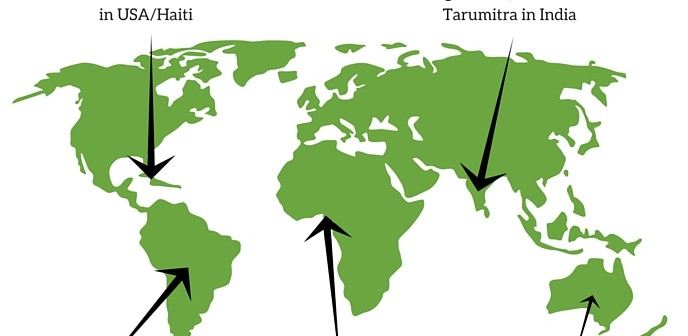Nine Lehigh students were chosen to present at the United Nation’s Commission on the Status of Women global conference this March. Lehigh students have never had the opportunity to present at this annual conference, which is attended by over 1,000 of the world’s top female political and societal leaders. The students are representatives for six non-governmental organizations, five of which have never had a voice at this conference before.
The student representatives working on these presentations are from all four colleges and are both graduate and undergraduate students.
Bill Hunter, the director of International Outreach, said that the United Nations Youth Representative program was based on Lehigh’s 2008 program model. Now, there are over 400 young people around the world serving in this capacity, but Lehigh still has the world’s largest contingent with 28 representatives.
Presenter De’Anna Daniels, ’14, said that the diversity of students committed to this cause resembles the diversity of the United Nations.
“The most diversity I’ve ever seen at Lehigh has been in this Lehigh-UN partnership,” Daniels said. “That’s great and important. We’re representing these diverse NGOs, so it’s great to see so many diverse people at Lehigh committed to it.”
Two different groups of student representatives were chosen to give presentations. Daniels and Lyasha Bishop, ’16, are attending on behalf of the Center for Women’s Studies and Intervention based in Abuja, Nigeria. This NGO educates women in Nigeria about world problems and how to create change or be part of the solution. Daniels’s and Bishop’s presentation, called Women and Environment in Nigeria, discusses the ways in which women can be part of the solution to the organization’s goal of sustainable development. Daniels said that Nigerian women are absent from all levels of policy making, and one goal of the CWSI is to address this gap.
“This presentation will present a strategic action plan needed for sound environmental management that will require involvement of women,” Daniels said.
Because NGOs often don’t have much money to work with, they rely on youth representatives to relay their progress back to and get updates from the United Nations. Lehigh’s youth representatives keep in contact with the leaders of their respective NGOs to stay informed on what the organizations are doing as well as to send briefs back from the UN meetings they attend.
Though normally much of the relationship is remote, the leader of the Center for Women’s Studies and Intervention plans to come from Nigeria to attend the conference.
“She has decided that students should speak for her NGO even though she’s there,” Hunter said. “That says a lot about the quality of the Lehigh students serving in this capacity.”
The other Lehigh students presenting at the conference are Elena Martin, ’16, representing Caring and Living as Neighbors in Australia; Petritia Davidson, ’14, representing Peace Builder Solutions in USA/Haiti; Priya Chokshi, ’16, representing Simply Help in Latin America; and Mikayla Cleary-Hammarstedt, ’18, representing Tarumitra in India. Working together, along with first-year youth representatives Rizzo and Rob Smith, ’19, they are hosting a panel called Unification of Education to Empower Women on a Global Level.
Adrienne Nenow, ’14, who is moderating the panel, said that although these NGOs are quite separated geographically, their missions all align in that they are trying to make the world a better place though women’s empowerment.
“The panel aims to show that (the different NGOs) really all have similar goals and visions and should work together,” Chokshi said.
Smith and Rizzo represent the NGO “Tarumitra” along with panelist Cleary-Hammarstedt. Tarumitra, which means “Friends of Trees” in Hindi and Sanskrit, is a movement of over 250,000 students of both genders advocating for a healthy environment. Rizzo said she felt honored to be chosen as one of Tarumitra’s youth representatives because it gave her the chance to represent 250,000 students across India.
“It’s really exciting for me because I don’t think I could ever have as much to say as all their voices combined,” Rizzo said. “Representing them really does give me a mission and a purpose.”
Daniels said that being a youth representative showed her there are many ways to be an activist — from marching, to supporting people in the field, to actually changing policy.
“Here at Lehigh we have a chance to be globally committed, and even though I’ve never met [the leader of the CWSI], we still have a connection that’s deep and real and here,” Daniels said. “I didn’t need to meet her to be committed.”






Comment policy
Comments posted to The Brown and White website are reviewed by a moderator before being approved. Incendiary speech or harassing language, including comments targeted at individuals, may be deemed unacceptable and not published. Spam and other soliciting will also be declined.
The Brown and White also reserves the right to not publish entirely anonymous comments.